Directions (1-5): Study the information carefully and answer the questions given below.
Ten children are sitting in two parallel rows. A, B, C, D and E are sitting in row-1 facing south while P, Q, R, S and T are sitting in row-2 facing north. Each of them has different number of toys. Children who sit in row-1 have number of toys is multiple of 9 and who sits row-2 have number of toys is multiple of 8. The person who has maximum number of toys is 45.
Only two persons sit between P and the one who faces the person who has maximum number of toys. B sits second to the left of A. C faces the person who has 4 toys less than C. R sits second to the right of the one who has 2 toys less than E. The one who has maximum number of toys is not sitting at any end. A faces the one who has 7 toys more than A. Neither P nor S faces A. P has more toys than Q but less than R who is not an immediate neighbour of S. Q sits immediate right of T. B has odd number of toys. P faces the one who has more number of toys than B. S has less number of toys than Q.
Q1. Who among the following has 3 toys more than Q?
(a) B
(b) D
(c) C
(d) E
(e) None of these
Q2. Who among the following sits diagonally opposite to R?
(a) The one who has 16 toys
(b) D
(c) The one who has 18 toys
(d) C
(e) None of these
Q3. Which of the following statement is true about D?
(a) D faces the one who has 8 toys
(b) D has maximum number of toys
(c) Only two persons sit between D and E
(d) P has 5 toys less than D
(e) None is true
Q4. How many persons sit left of the one who has 16 toys?
(a) One
(b) Three
(c) Two
(d) None
(e) Four
Q5. What is the position of A with respect to C?
(a) Immediate Right
(b) Fourth to the left
(c) Third to the right
(d) Second to the left
(e) Immediate Left
Directions (6-10): Answer the questions based on the information given below.
Eight persons namely, P. Q. R, S, T. U, V and W live in a building of four floors. The ground floor is considered as 1st floor, the floor above it as 2nd and so on. Each floor consists of two types of flats i.e., Flat -I and Flat-II. On every floor, Flat-I is west of Flat-II. The dimensions of each of the flats are the same. Only one person lives in each flat. Flat-I of the floor-2 is immediately above Flat-I of floor-1 and immediately below the flat-I of the floor-3 and so on.
Note: If a person lives immediately above/below another person then both must live in same type of flat until and unless stated otherwise. If there is one floor gap between two persons, then both live in the same type of flat.
P lives on an even-numbered floor. P lives immediately above the flat of Q. R lives to the west of Q. There is a one-floor gap between S and W. T lives in the east of S. U lives on the 3’d floor. V and W live in different types of flats.
Q6. Who lives immediately above V?
(a) R
(b) T
(c) S
(d) W
(e) None of these
Q7. Who lives in flat-II of floor-3?
(a) U
(b) T
(c) V
(d) P
(e) S
Q8. ___ and W live on the same floor?
(a) Q
(b) T
(c) R
(d) P
(e) None of these
Q9. Who among the following persons live on the bottommost floor?
(a) R, P
(b) T, U
(c) P, W
(d) R, Q
(e) None of these
Q10. Who lives two floors below S in the different type of flat?
(a) T
(b) U
(c) R
(d) V
(e) None of these
Directions (11-12): In the following questions, the symbols &, *, $, % and © are used with the following meanings as illustrated below. Study the following information and answer the given questions:
P&Q – P is the parent of Q.
P%Q- P is the grandchild of Q.
P©Q- Q is the only daughter of P.
P*Q- Q is the father of P.
P$Q – P is the husband of Q.
Q11. If U©V*W&X%Y$Z then how V is related to Z?
(a)Grandfather
(b)Uncle
(c)Grand-daughter
(d)Wife
(e)None of these
Q12. If K&L%M©N*O then how K is related to N?
(a)father
(b)Brother
(c)daughter
(d)Sister
(e)None of these
Q13. What should come in place of question mark (?) in the following series based on the above arrangement?
PA NB KD GG ?
(a) CB
(b) BK
(c) AB
(d) CA
(e) Other than the given options
Q14. Statement: World Health Organisation has decided to double its assistance to various health programmes in India as per-capital expenditure on health in India is very low compared to may other countries.
Assumptions:
I. The enhanced assistance may substantially increase the per-capita expenditure on health in India and bring it on par with other countries.
II. The Government funding is less than adequate to provide medical facilities in India.
(a) Only I is implicit
(b) Only II is implicit
(c) Either I or II is implicit
(d) Neither I nor II is implicit
(e) Both I and II are implicit
Q15. Statement: “A visit of school children to forest to widen their knowledge of natural resources has been arranged.” – A notice in the school.
Assumptions:
I. Forests are full of natural resources.
II. Children are likely to learn from their interaction with the new environment.
(a) Only I is implicit
(b) Only II is implicit
(c) Either I or II is implicit
(d) Neither I nor II is implicit
(e) Both I and II are implicit
Solutions
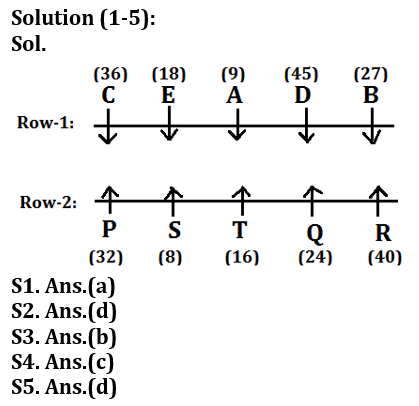
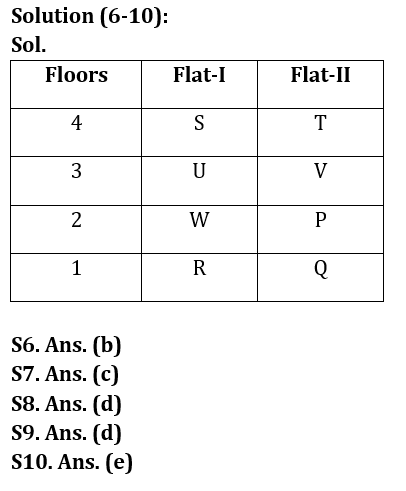
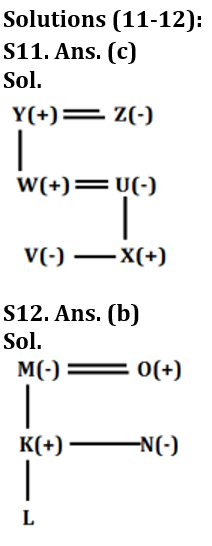
S13. Ans.(b)
Sol. BK
S14. Ans. (e)
Sol. The fact that WHO has extended its assistance to India implies that government funding here is not adequate. So, II is implicit. Besides, WHO has decided to provide assistance to health programmes in India keeping in mind the considerably low per-capita expenditure on health. So, I is also implicit.
S15. Ans. (e)
Sol. The forests shall be visited to increase the knowledge of natural resources. This means that forests abound in natural resources. So, I is implicit. The children are being taken to forests to help them learn more practically. So, II is also implicit.
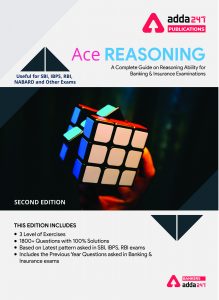


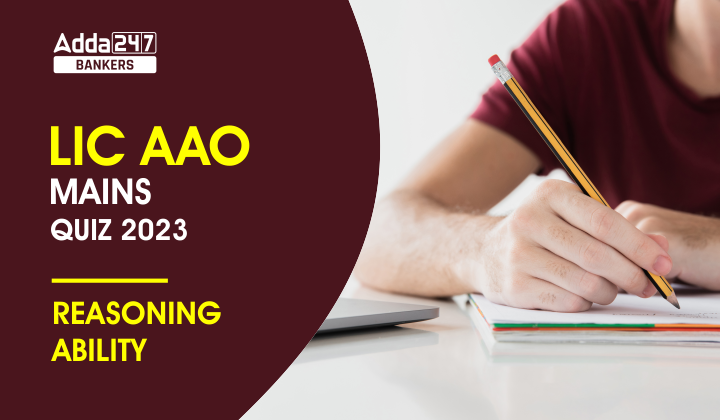

 GA Capsule for SBI Clerk Mains 2025, Dow...
GA Capsule for SBI Clerk Mains 2025, Dow...
 The Hindu Review October 2022: Download ...
The Hindu Review October 2022: Download ...
 30 Days Study Plan to Crack SBI Clerk 20...
30 Days Study Plan to Crack SBI Clerk 20...





